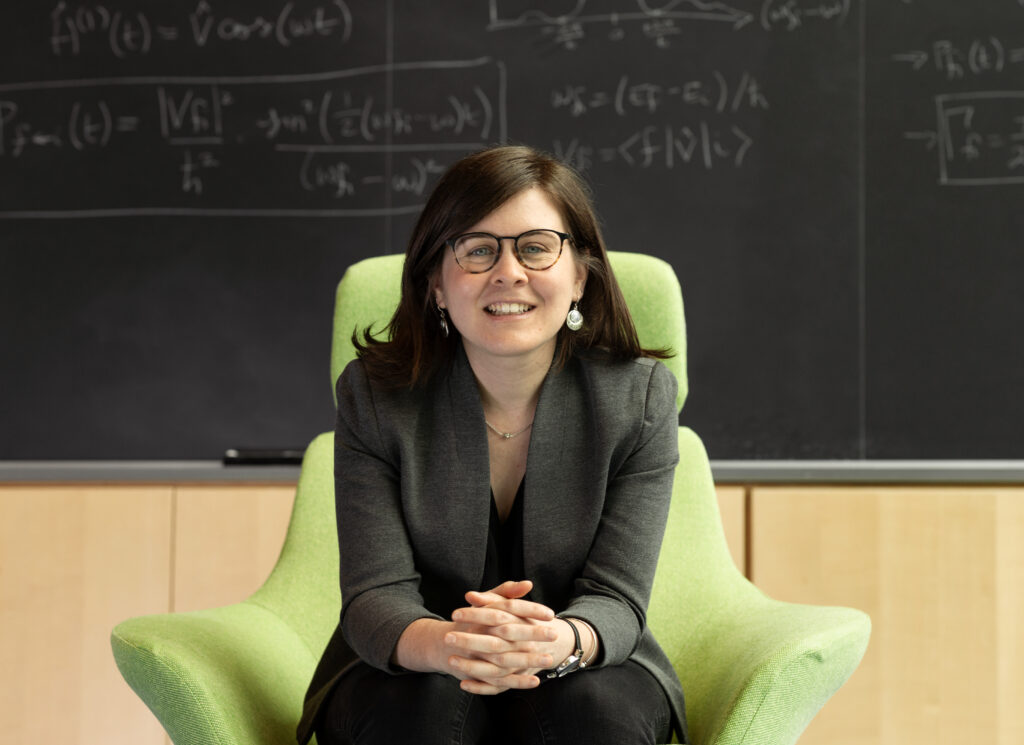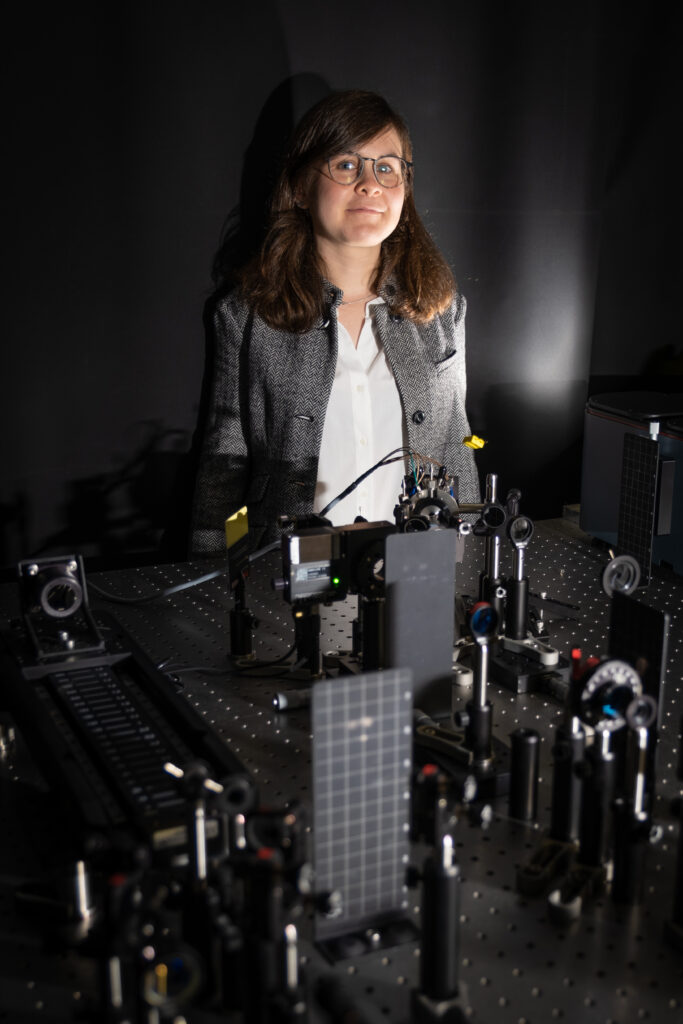Marissa Weichman Wins Packard Fellowship

Marissa Weichman, assistant professor of chemistry, has been awarded a 2023 Packard Fellowship for Science and Engineering by the David and Lucile Packard Foundation for her proposal to study atmospheric aerosols and their potential role in climate change.
Weichman is one of 20 scientists nationwide to receive the prestigious, early-career fellowship, among the nation’s largest nongovernmental awards. Designed to allow maximum flexibility in the use of award funds, the Foundation allots $875,000 over five years to each fellow to spend on research as they wish.
Fellowships are awarded to encourage innovative, blue-sky thinking that could one day foster discoveries to improve lives and broaden our understanding of the universe.
Weichman, a physical chemist, was selected for her proposal, The Stratosphere in Focus: New Spectroscopic Tools for Aerosol Science.
“I’m especially thrilled with this fellowship to get to join the community that comes with being a Packard Fellow—all people who are doing such exciting things in their fields across scientific boundaries,” said Weichman. “I’m excited to meet my cohort of fellows on the tenure track, so it really is about finding peers and forming those bonds that are so inspiring.
“Also, the Foundation gives you the startup money without restrictions, recognizing that maybe you’ll have other great ideas or there’s something else that you think of tomorrow that you might want to do,” Weichman added. “So for the next five years, that flexibility allows me to go for bigger, riskier ideas that can have greater impact.”
“From the nanoscale to the scale of the galaxies, the 2023 class of Fellows are making ground-breaking discoveries, conducting critical research, and leaving a lasting impact on the scientific community and our world,” said Jason Burnett, Packard Foundation Board Chair in a press release. “Their ability to strive for the impossible is a contagious source of hope for those looking to change the field of science and will serve as inspiration for the next generation of researchers.”
This is the third Packard Fellowship among Princeton Chemistry faculty, including Department Chair Paul Chirik, the Edwards S. Sanford Professor of Chemistry; and Associate Professor of Chemistry Leslie Schoop.
Responding to the announcement, Chirik said: “This highly competitive award speaks to what we all know at Princeton—that Marissa is a superb scientist, teacher, and colleague. In just a few years into her independent career she has developed an impactful and visible program on light-matter interactions, particularly understanding the chemistry of polaritons.
“As a former Packard Fellow, I know these awards allow for the freedom to explore new, high-risk, high reward ideas outside the realm of traditional funding streams. I have no doubt Marissa will make the most of this opportunity.”
Under the Packard proposal, the Weichman Lab will use spectroscopic techniques to investigate uncertainties around the role of aerosols in the atmosphere and their involvement in climate change.
Aerosols are ubiquitous, microsized particles suspended in the air—water droplets, dust, soot—that influence two phenomena central to the Earth’s climate and weather: the scattering of sunlight and the seeding of clouds. These roles, however, are poorly understood. Weichman will look at how a particle’s size and composition influences its chemistry, the scattering and absorption of light, and its ability to seed cloud droplets.
“Aerosol-light and aerosol-cloud interactions remain the largest sources of uncertainty in our best models of Earth’s radiative balance. Our current knowledge of these intricate systems is not sufficient to capture their role in the climate crisis, much less predict the impact of potential climate interventions,” said Weichman.
“All of these complicated interactions depend on the size of the particle and its composition. If you’re measuring how these particles behave and averaging over millions of particles of various sizes and compositions, you’ll never be able to understand what’s actually happening.
“So instead, we’re going to look at a single particle. Let’s hold one single salt particle or dust particle, trap it with electromagnetic fields and hold it in place for minutes or hours or days, and watch what happens under a battery of simulated atmospheric conditions.”

Weichman in her lab at Frick.
Weichman believes the data gathered in her lab will provide a strong foundation for decisions about solar radiation management strategies and other efforts to counteract global warming.
Weichman joined Princeton Chemistry in 2020 from the University of Colorado, Boulder, where she was a NIST NRC postdoctoral fellow. She received her B.S. in Chemistry from the California Institute of Technology, and her Ph.D. in Chemistry from the University of California, Berkeley.
In recent years, she has received a Faculty Early Career Development (CAREER) grant from the National Science Foundation; a next-generation STEM grant from the Department of Energy Office of Science’s Early Career Research Program; and a seed grant from the American Chemical Society Petroleum Research Fund through the Doctoral New Investigators Program.
Along with her position in the Department of Chemistry, Weichman is an associate faculty with the Princeton Quantum Initiative, the Princeton Materials Institute, and the High Meadows Environmental Institute.
Weichman was born in California. The daughter and grand-daughter of physicists, she grew up in California, Colorado, and in Boston, Massachusetts, and has family roots in the Princeton area.
The David and Lucile Packard Foundation is a private family foundation created in 1964 by David Packard, cofounder of the Hewlett-Packard Company, and Lucile Salter Packard.
